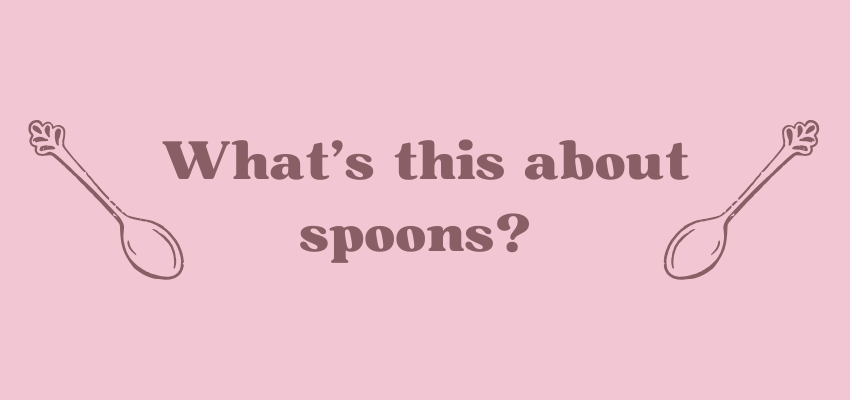The Blog
Why The Spoonie Dietitian?

Spoonie is a term used by people with a chronic illness and/or a disability. It started with The Spoon Theory by Christine Miserandino, who has Lupus. She was with a friend at a diner, when her friend asked her what it felt like to be sick. To help answer the question, she grabbed a whole bunch of spoons, handed them to her and said “Here you go, you have lupus”. She proceeded to answer her question and at the same time creating spoon theory. You can read her full story here.
So, what exactly is Spoon theory?
Spoon theory is a way of explaining how it feels to live with a chronic illness and/or disability. The average healthy person has an almost unlimited amount of energy. This means they can essentially do whatever and as much as they want in a day without much thought. Those with a chronic illness and/or a disability (Spoonies) start the day with a set amount of spoons, or energy. Each task throughout the day costs spoons, some more than others. This starts even before you get out of bed.
For Example
To get out of bed may look something like this:
- You might need to get up slowly so you don’t get dizzy
- You may have pain that affects how you get out of bed
- Maybe you had a really bad night of sleep
So, now you’ve already lost at least one spoon just getting out of bed. Then, you feel nauseous, but you have medication to take, which needs to be taken with food. So, you make yourself some breakfast, eat it, and take your medication. Already, your now down at least two spoons. This goes on throughout the whole day, and once they’re gone, they’re gone.
How this affects daily life
You now need to think about everything and choose how to use your spoons wisely. This can affect everything in your life, because you don’t want to use all your spoons too early. For example, I grew up showering in the mornings. But, since becoming unwell, I started to shower at night mostly. I find that showering can use a lot of spoons. So, by showering at night, if I am left exhausted or dizzy, I can then lay or sit down and just rest. However, if it was the morning, it would affect my ability to go to work or get other tasks done throughout the day.
Having limited spoons can sometimes mean choosing between doing certain tasks. Or it can mean choosing between catching up with friends and family or not. Some days you have more spoons than others. But you need to be careful not to overdo it and accidentally use more spoons than you have. I know I’ve woken up on a low symptom day and tried to do everything, like before I became unwell. I’ve then paid for it the rest of the week, where I then struggle to do anything but rest.
So, I’m a spoonie
Chronic illness, pain and fatigue is just a part of my life now. I always have to think about it. This means planning things around how I’m feeling, and sometimes cancelling things I’ve been looking forward to. I believe spoon theory is one of the best ways to describe the ups and downs of energy and symptoms that I experience.
To my fellow Spoonies, do you have any other ways to explain to friends and family what it’s like?
To the Spoonie supporters, try your best to understand. Ask your Spoonie friend or family member how you can best support them.
🩷 Emma
Comments will load here
Be the first to comment